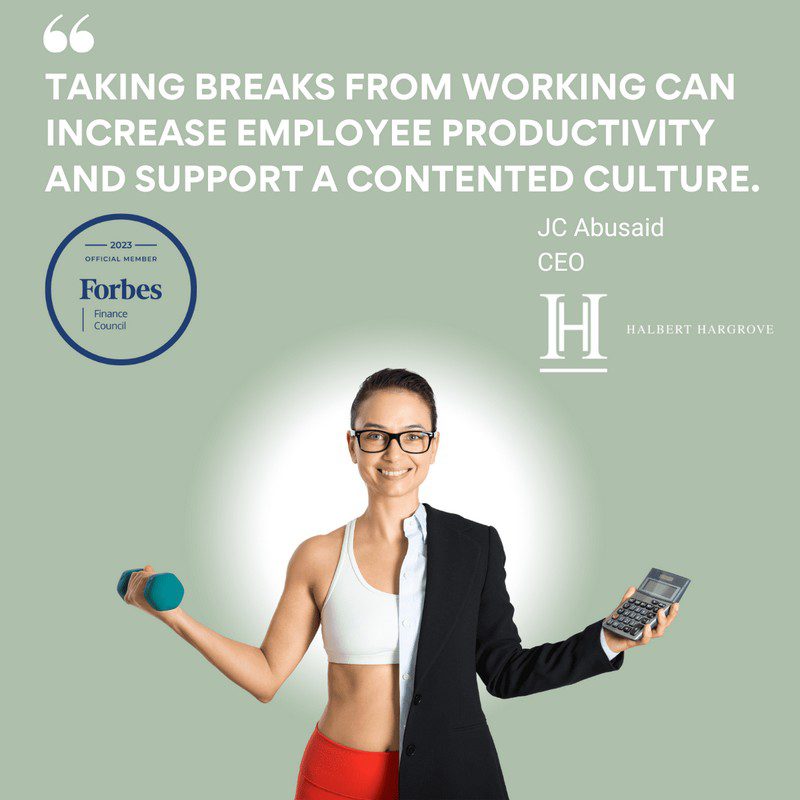By JC Abusaid, CEO/President as Featured in Forbes
Taking breaks from working can increase employee productivity and support a contented culture, but according to a recent Pew Research survey, nearly half of employees who take less time than their employer offers worry they might fall behind if they took more time off. Unfortunately, the work-from-home trend during the pandemic pushed many corporate cultures in the opposite direction. The result has been far too many overworked, burned-out employees who are checked out.
There have been numerous studies that have shown both the physical and mental benefits of taking off from work, and I’ll fight any battle for people to take time off and not feel guilty.
Here’s why and how to do it.
Why is time away from work so important?
For my wife and me, time away to explore new places and embrace new experiences isn’t something tacked on to a working life. It’s a priority and a necessity. Seeing other parts of the country and world enriches your life and gives you a different perspective. Even a road trip can create mental space for personal growth.
But in the early days at my firm, taking a two-week vacation to backpack in Europe sent some heads spinning.
Twenty-five years later, the finance industry still tends to be married to a long-hours-without-time-off ethic. Yet people need time off to disconnect, reset and enjoy life. Long weekends nourish productivity, too: Workers are more refreshed and engaged the rest of the week when they have enough space to reboot.
Companies that demonstrate they share these values cultivate employee commitment.
It has been proven that vacations also reduce stress and the risk of metabolic syndrome while boosting learning capacity, better sleep and greater heart health.
Additionally, there are direct benefits for your organization. Time away tests redundancies. How well-oiled are your firm’s backups? If people can’t take vacations, get out the red flags. During my vacation weeks in Europe, for example, nothing went up in flames (of course I had quadruple-checked before leaving!
), and that’s how it should be. In a related vein, if an employee is doing something unprincipled, it just might show up while they’re away.
What does time away look like?
Like many companies, mine had an accrual PTO system for many years. We’ve since moved to an unlimited paid vacation policy. Why? Personal growth and time to decompress for our associates are absolute. We want our people to seize opportunities that arise, expand themselves and be able to take a break when they truly need one, even if they haven’t accumulated enough “hours.”
When I describe our policy to other leaders I often hear, “Unlimited time off with pay? That’s a gimmick!” or “It will impact productivity!” Some think we must cap it somewhere or make a fuss about taking off for long periods. But we really do mean unlimited. Of course, we set firm parameters—in both directions.
We’ve never seen anyone abuse this privilege, and we believe it’s a differentiator in hiring talent.


